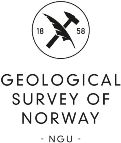

|
Norsk versjon | ||||
| THE ORE DATABASE | |||||
| Deposit Area 1543 - 002 | |||||
| (Last updated 06.mar.2023) | |||||
Name of Deposit Area : Heindalen |
| (Object Id : 1543,002,00,00) |
| The deposit area belongs to the Province : Møre jern-titan-vanadium |
| Location |
| County : | Møre og Romsdal (15) | Municipality : | Nesset (1543) |
| Map 1:50000: | Tingvoll (1320-1) | Map 1:250000: | Ålesund |
| Marking point: | Longitude: | 7.9912620 | Latitude: | 62.7855760 |
| EU89-UTM Zone 32 | (Coordinates IS confirmed) |
| X-coord: | 448531 m. | Y-coord: | 6962102 m. |
|
|
| Commodity |
| Main Type: | Ferrous metals(Fe, Mn, Ti) | Sub Type: | Iron-Titanium | |
| Element(s): | Fe Ti |
| Production |
| Activity: | Reserves: | 5700 thousand tons | ||
| Prod. method: | Production: | |||
| Prod. status: | Volume of dump: | |||
| Resource estimat. standard: | Non compliant |
| Importance |
| Public: | Regional Importance (reg. 02.06.2015) |
| Economical: | Could be significant , (Confirmed 02.jun.2015 by Are Korneliussen) |
Mineralization |
| Era: | Proterozoic | Period: | ||
| Dating: | Method: | |||
| Genesis: | Orthomagmatic formation | Form: | ||
| Main texture: | Min. distribution: | Semi-massive (20-50 % ore minerals) |
| Main grain size: | Main alteration: |
| Strike/Dip: | Direction: | |||
| Plunge: |
| Ti-deposit type(s) |
| Main type: | Magmatic | Ilm/Mt-ratio: | ||
| Sub type: | Mt +/- Ilm +/- Ap in mafic intrusion | %TiO(Ore): | 3 - 6 | |
| Titanium province: | Møre | %P2O5(Ore): | ||
| Host rock: | %MgO(Ilm): | <1 | ||
| Main Ti mineral: | Ilmenite | %V2O3(Mt): | > 0.8 | |
| ppm U (Rutile): |
| Stratigraphic classification of host rock |
| Era: | Proterozoic | Period: |
| Province: | Caledonian Basement Province | |
| Geotec.unit: | Western Gneiss Region | |
| Tectonic complex: | ||
| Igneous complex: |
| Group: | Formation: |
Mineralogy |
| Relationship | Mineral | Amount | |
| Gangue mineral | Amphibole | Major mineral (>10%) | |
| Ore mineral | Titanomagnetite | Major mineral (>10%) | |
| Ore mineral | Ilmenite | Subordinate mineral (1-10%) |
Lithology: |
| Relationship | Rock | Origin | |
| Host rock | Amfibolitt |
Information(s) in free text format |
| Free text |
| The Heindalen Fe-Ti-V deposit is located 9 km SW from the major Rødsand deposit, and is found in the same geological setting. It is associated with Fe-Ti oxide-rich amphibolites surrounded by Palaeoproterozoic orthogneisses. The deposit is found on both sides of the Heindalen river, of which the eastern part comprises a possible resource of 4.8 mill.t. and the western part 0.9 mill.t. The ore comprises disseminated to semi-massive Fe-Ti oxides. |
| Photo(s) from the Deposit area: |
|
Bibliography: |
| From NGU's Reference Archive: |
| Geis, H.P. , 1968 |
| Norges jern-titanforekomster |
| ;Norges geologiske undersøkelse;FAGRAPPORT;Bergarkivet; No.BA 7907;155 pages |
| Abstract: | |
| Oppramsing av hele landets jern-titanforekomster, hvorav 15 trekkes fram som de største. Hver forekomst beskrives ut fra befaring med geologiske og dels kjemiske data. Oppredningsresultater presenteres også. Oppramsing- en går fra Hedmark til Finnmark i nord. |
| Hagen, O. N. , 1903 |
| Rapport over Jernforekomst ved Hovigelven. |
| ;Norges geologiske undersøkelse;FAGRAPPORT;Bergarkivet; No.BA 1399;2 pages |
| Abstract: | |
| Rapporten fra befaring. Resultat: at intet kan uttales om drivverdighet. Magnetiske undersøkelser anbefales, og prøvetaking av skikkelige gjennomsnittprøver. |
| Foslie, Steinar , 1935 |
| Heimdalen grube. Geologisk profilskisse 1:2 500. |
| ;Norges geologiske undersøkelse;KART;Bergarkivet; No.K 469 |
| Foslie, Steinar , 1935 |
| Heimdalen grube. Geologisk kart 1:1 500. |
| ;Norges geologiske undersøkelse;KART;Bergarkivet; No.K 470 |
| Sanetra, Stephen , 1985 |
| The Rødsand Fe-Ti-V deposits, Møre, Western Norway |
| ;Norges geologiske undersøkelse;TIDSSKRIFTARTIKKEL;NGU Bulletin; No.402;39-49 pages |
| Abstract: | |
| Rødsand Gruber, situated west of Sunndalsfjord, West Norway, has been an important supplier of Fe-Ti-V ore for more than 80 years. Eight major orebodies, intimately associated with strongly folded amphibolites, produced some 15 Mt of crude ore yielding 25-30% magnetite, 3.5-4% ilmenite and 0.15-0.20% V. The amphibolites and their host rocks belong to the Raudsand group, mainly comprising quartz dioritic, grandioritic and granitic gneisses. Rh/Sr isochrons indicate an age of about 1700 Ma for the gneisses. The Rødsand deposits in its present form developed during deformation and metamorphism. High An-contents of plagioclases, the existence of relict pyroxenes and the sulphide paragenesis indicate that the deposit is a product of the fractional crystallization of a basic magma. |
| The fact sheet was created on 11.05.2024 |
| Questions or comments regarding the fact sheet can be emailed to: ressursdatabaser@ngu.no |
| Copyright © 2024 Geological Survey of Norway |